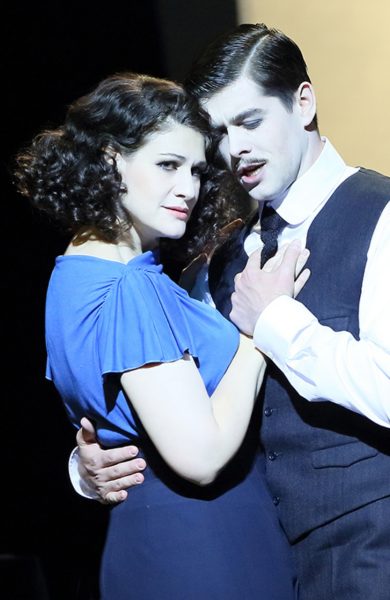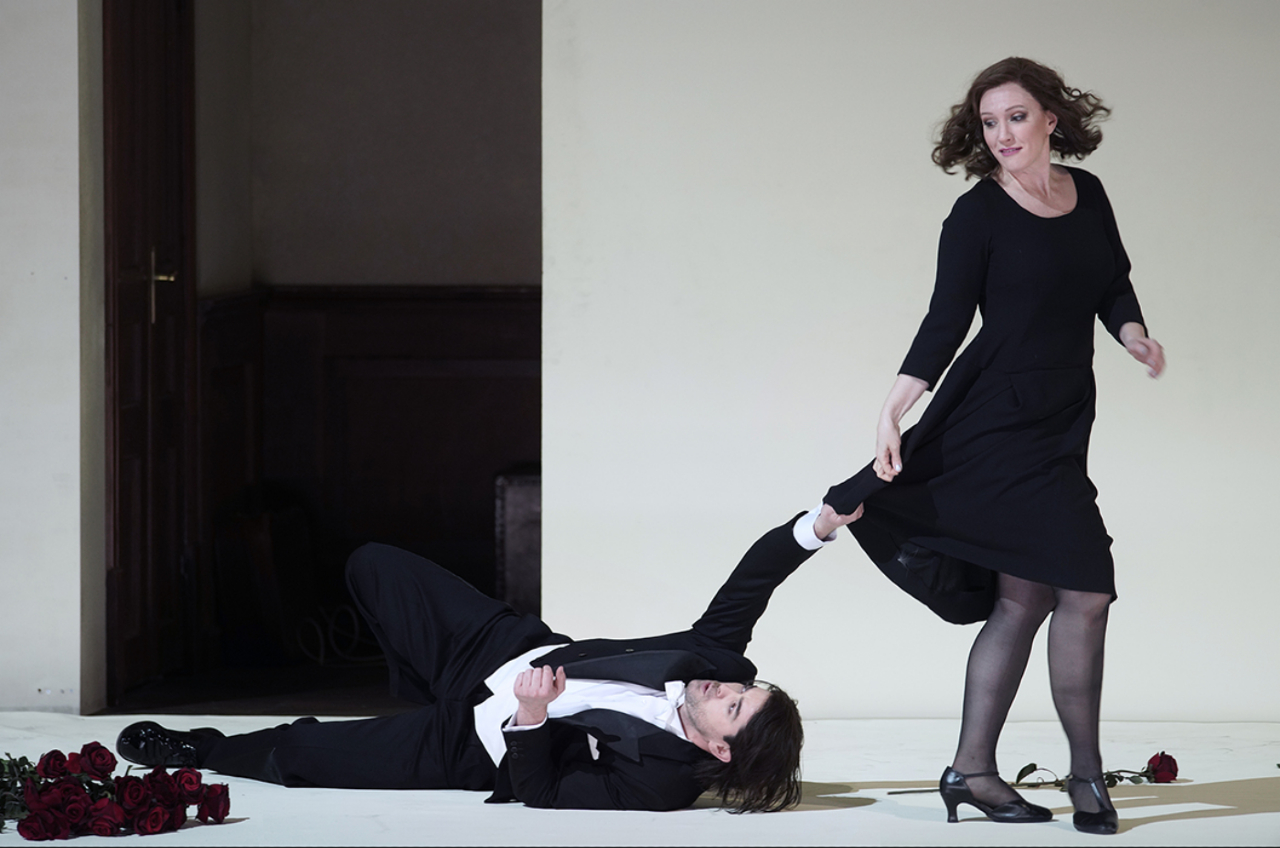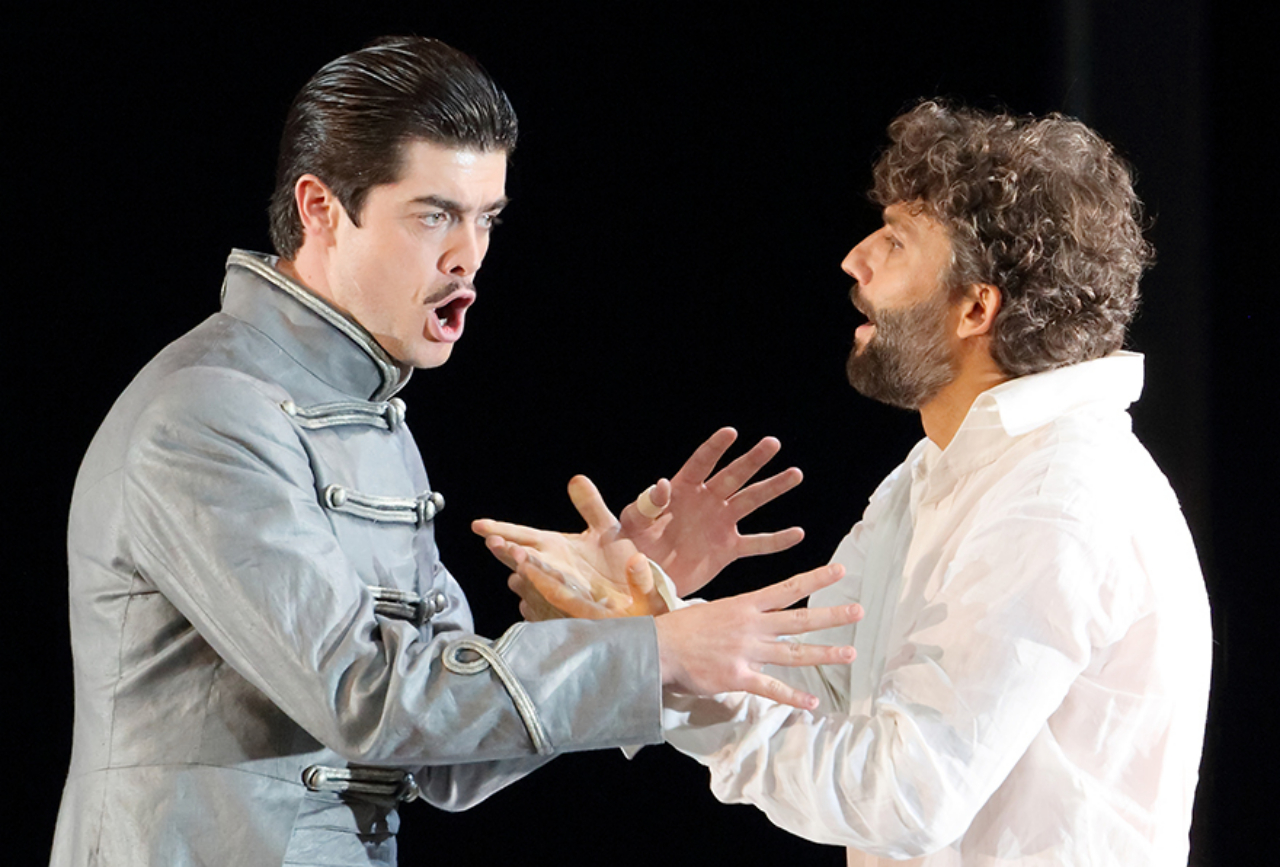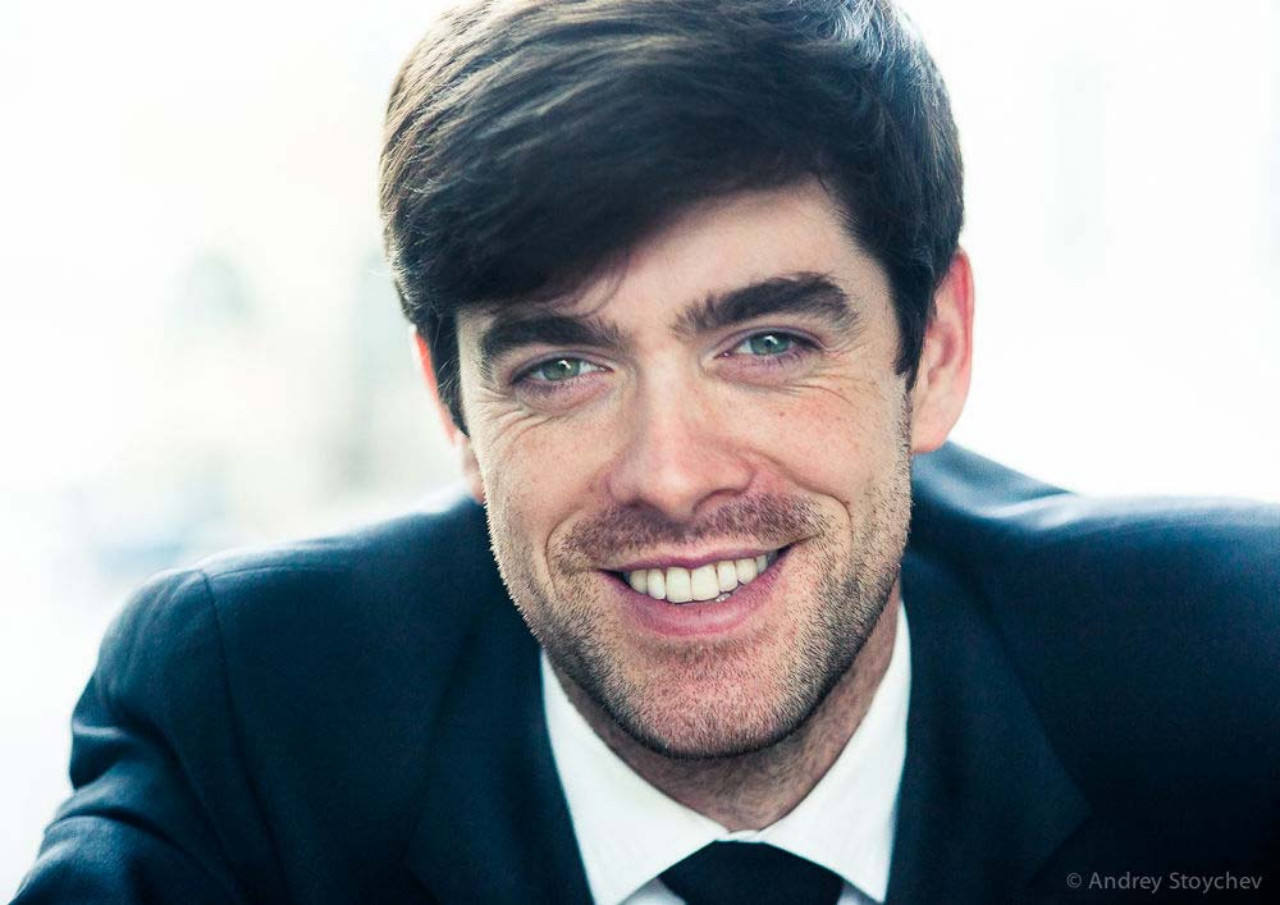Dean Power: Opera Singer
Originally from Co. Clare, tenor Dean Power studied at both the DIT (now TU Dublin) Conservatory and the Royal Irish Academy of Music in Dublin. In 2010 he secured a place at the Opera Studio at Bavarian State Opera in Munich, a sought-after scheme for young artists, and was shortly after engaged as a full member of the ensemble. After working in Germany for a decade, he recently moved back to Ireland, and has performed both on stage with Irish National Opera (in Fidelio and The First Child), and in concert with the Irish Baroque and National Symphony Orchestras.
Understated and easy-going in person, Dean has made a name for himself as an international solo artist in the world of opera. In the past few months, he has performed with Teatro Real Madrid (singing Graf Elemer in Arabella by Richard Strauss) and is just back from making his debut at the Salzburg Easter Festival, where he sang the role of Heinrich der Schreiber in Wagner’s Tannhäuser, sharing the stage with a starry cast that included Jonas Kaufmann in the title role.
He’s now rehearsing with Irish National Opera for the upcoming season of Mozart’s Così fan tutte. In it, he sings the role of Ferrando, one of two terrible boyfriends in this opera, a story that tests fragile boundaries in relations between the sexes.

Dean Power with Anja Harteros - from 2015 Munich production of Arabella (© Wilfried Hösl)
For Dean, the challenges of this comedy start with the name itself:
Yeah, the title itself is straight-up sexist, let’s just call it what it is: ‘sure that’s how all women do it’. It's very hard to do the opera – to see Ferrando – without showing serious remorse and shame for what he does… but it all depends on the version that you do, so what way is that going to go?
For most of the opera, you’re playing two roles at once, since Ferrando spends so long in disguise – how does that work?
In the beginning you are the character that you are, but you're welcomed back onto stage by Don Alfonso, and we're all dressed up to go to war and the story is now in play. Every now and again we have an aside, but from that moment on until the end, when everything comes out, we are not ourselves. Yeah, maybe like in the first aria, where Ferrando is just waiting for it to be over so that he can get back to being with Dorabella again, that's a quick moment. But in general, when anyone else is on stage, you're still part of the act and you're on edge waiting for someone coming so that you can keep the story going.

Dean Power with Sara Jakubiak - from 2023 Madrid production of Arabella (© Javier del Real)
You must enjoy the teamwork that you get in this opera.
Oh, it’s a total ensemble piece. It's so tight. I love Così, it's always so much fun. It’s difficult, vocally it’s difficult, but it's fun and when it's done well it's fantastic, for the audience as well. I'm really looking forward to this production, to getting on the stage already.
You say it’s difficult vocally – what are the challenges singing this opera?
The ensembles themselves are tricky, especially the two finales: sometimes you're just sitting on top of the passaggio [transition point between different parts of the voice] and you're singing there quiet, then loud, then quiet, and then you might have to use really fast agility to get through certain passages, then sing loud and sing soft again, and that's just technically tricky. And you're trying to do that all while acting and staying in character.
We're often like swans or ducks, we might look calm but actually the legs are going ninety underneath the water, and we're doing an awful lot to make that happen. When you do sing solo there's sort of freedom there, but with the ensembles you don't have that because you have to be in the group. If I drag here, it'll make it difficult for someone or if I’m too fast there I make it difficult for someone else to get through.
The conductor must play an important role in all that. How do you find working with Peter Whelan?
He’s a joy to work with – he knows how to get the best out of everyone, and still get what he wants. What's wonderful is that he's clear when he has to be, and he trusts who he's working with basically and he lets people do what they all naturally know. So, if, in the rehearsal process we realise that person needs a bit more space at that moment, we all listen, and carry on. You're allowed to be a musician, basically, which is lovely. It is rare to be given so much trust, you know, by conductors. He's super brave to do that, but he gets a lot back from us.
This season has a double cast – how does that work?
When INO were booking the Gaiety, they were only able to book it for a block, so instead of making us perform five or six days in a row, when we would need a day off in between, they decided to alternate casts on those nights. The rest of the time, in Wexford, in Limerick, in Galway and in Cork it’s one cast, and then in Dublin it's both. So that's how that works. So, the other cast will figure out their thing and we'll figure out ours and hopefully keep both productions close together, so that if someone got sick, someone could jump in.
Will there be differences in approach between the two casts?
Yeah, yeah, absolutely, there will definitely be differences. Even from the energy of all the people, we're all so different. The general idea will have to stay, we'll have to be careful, I think, for it to function, but you could be free in certain areas and it would actually work well and still fit.
Does anything else stand out about this production?
We have loads of Irish singers, it’s fantastic, we're all really proud. Across both casts we have twelve people, of whom eight or so would be Irish. In one cast it's all six and the other cast one Northern Irish, one Italian and one Swiss, and two Irish conductors as well, so it’s really good. I don’t mean to blab on about it, but it’s nice to see, it’s not something I’m used to!
Irish singing is enjoying a very good moment. There are some very fine artists coming out of this country, yourself included.
It's a credit to the teaching. It's a credit to the universities and the colleges here. Fair play to them, really. I'm very grateful for the schooling I had.
With so many Irish singers, is there a different feel in rehearsals?
Not really, no. In this line of business every new production is like a bubble community, and everyone respects that, and they realise that some people are not from a certain area, so we try as fast as we can to make sure that everyone is part, has that feeling that they're part of a team. When you get that, the work rate becomes better in every sense, people are not stressed and feeling relaxed, and there's this relaxed, unconscious and kind of settled confidence that lets people do and concentrate on what they're doing, right? So you end up getting a better product when you have this security. So that’s good.

Dean Power with Jonas Kaufmann - from 2015 Munich production of Manon Lescaut (© Wilfried Hösl)
Can you say more about the team dynamics?
I know some people might think that you need competition to get the best things and maybe, maybe some people are like that, but I feel like that actually in this situation, no. I think it's kind of like playing a game. Like if you're playing a game of football, except you weren't playing against anyone, so then you'll just practise and help them make the perfect score. So, you know how to get the best out of everyone and you've no fear of anything… you're not against the music you’re with the music, you know how to put it all together as best you can.
What are the challenges that you see for opera in Ireland now?
Yeah, I feel like there is a massive kind of hurdle for opera in Ireland and I think it still has to shake the elitism idea that it has. I meet it nearly every day when I go home, a lot of people would say that ‘oh, opera’s not for me,’ and they've never been to opera, and I think that's just a shame and I've brought people to opera many times, and they've always been so surprised. Yeah, it may or may not be good performance, but if you go to a live sports game, sometimes they're terrible, and sometimes they're amazing – live is live, you know. And I think people don't realise that opera lives and breathes.
I had a friend I brought to The First Child, when it came to Limerick, last year, and he has no interest in classical music or anything like that. He would have, honestly, thought the same – that ‘oh, that's not for me’ – that kind of mentality and he said he really did not expect opera to, first of all, be in English. He didn't expect it to have modern topics, deal with issues like bullying and the long-lasting effects of bullying on people – he never expected any of that. And he actually brought his wife as a surprise, she was not expecting to go to the opera, of all things, being with him. And they both had a great night, they loved it.
So, opera still has to shake the elitist shadow in Ireland. If you can shake that, I would think we would open ourselves up very, very quickly; it’s just having to do that, but it is growing. I think the work that all the companies in Ireland are doing, with the resources they have, is really top class.
What changes would you like to see?
Irish National Opera do outreach, and I think that's a great way to bring opera to new audiences, because that gets people involved before they even realise, and then they're curious. Just try and make it a bit more normal, do you know what I mean? Try and make opera part of culture. I wonder if we could do something with the GAA, that would be amazing - we need to write an opera about Christy Ring, or Jack O’Shea!

Irish National Opera’s production of Così fan tutte opens on Friday 19 May at the National Opera House Wexford, followed by performances at the University Concert Hall Limerick (21 May), Gaiety Theatre Dublin (23-27 May), Leisureland Galway (29 May), and Cork Opera House (31 May & 2 June). For further details and booking information, see: irishnationalopera.ie
